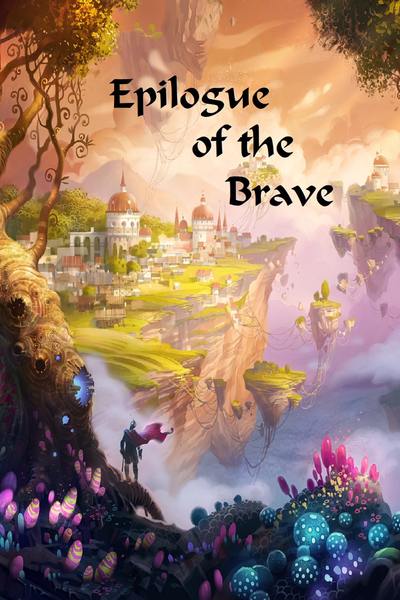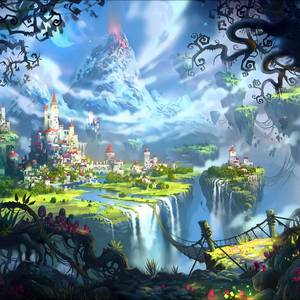In an attempt to keep his relationship with Lika’so less like an annoyingly inquisitive child and more like foreign exchange student, Alex refrained from asking about anything but what he thought he might need.
The currency used in the nation of Kogronia was called “kurn”. It came in denominations of 1, 3, 5, 15, 30, and 50 and were made of a nickel-steel alloy.
An average meal would set a person back around five kurn, but this didn’t used to be the case. Over the course of the last century the value of the kurn had increased, though Lika’so said she didn’t know the reason as to why. She had explained that-though stable-it used to be one of the least valuable currencies in the National Collective.
The National Collective was a partnership of the largest and most influential kingdoms on the world’s eleven continents. In many ways-Alex thought-it was equivalent to the United Nation back on Earth, though it differed in just as many aspects as it had in common with it.
It acted as a sort of centralized government that kept the peace; preventing large-scale, collaterally-damaging conflicts between or among countries and dishing out punishments to those breaking any of it’s agreed upon laws.
It had the authority to create embargos and ceasefires, restructure governments (though that was only in extremely rare cases), and order reparations be paid to any nation it deemed unjustly targeted or damaged during military conflicts.
The primary language of the country of Kogronia was Kni’il. Being the fourth most spoken language in the world, it was used internationally in trade and diplomacy.
There was significantly less linguistic homogeneity here than there was on Earth. The top fourteen spoken languages had only very slight differences in their quantities of speakers and were considered to have ostensibly the same amount of influence.
This information in particular caught Alex’s attention.
Unlike on Earth, where English and Mandarin had hundreds of millions more speakers than the next most spoken languages, this planet’s linguistic diversity was so prevalent that it was common for people to know up to seven languages.
Upon reflection of this fact, it made quite a bit of sense for that to be the case. Based on his own world’s history, much of the reason for there being a linguistic disparity of that magnitude was due to invasion. The National Collective Alex was told, prevented that scenario from occurring because it had developed almost parallel to the formation of geopolitical borders.
So much of Alex’s life had been spent learning and researching the history of languages. This, along with his introverted personality, isolated him from many of his peers growing up. Instead of talking about TV shows and video games and playing outside on the jungle gym, he would elect to read etymology books and listen to forigen language audio books. This consequently made him the only polyglottal pupil in his school.
Now, from what he was being told, being a polyglot was not only common in this world, but standard.
When Alex had asked Lika’so how many languages she spoke, her answer elated him.
Twenty languages! Even by the standards of this world that was impressive.
Why did she know so many languages? “I used to travel,” Lika’so answered, and wouldn’t elaborate further.
Alex hoped he would get the chance to travel too.
On Earth, he travelled a lot as a result of his occupation, following film crews to places like China, Iceland, New Zealand, Italy, and dozens of other popular filming locations. However, these trips weren’t vacations-they were work. Consequently, Alex hadn’t had the time to fully absorb or explore them-despite speaking their mother languages with native fluency.
There were times he would be assigned the role of interpreter to assist the director with communicating their direction to locals who had been hired as extras, but Alex had never really gotten the opportunity to get to know any of them.
This really disappointed him, as meeting new people was one of the driving factors for him wanting to learn so many languages, (despite being an extremely introverted personality).
There were very few instances in which he had actually held full-length conversations with anybody not a part of the main crew, but each one was special.
These conversations would usually begin with the native asking about the United States, but would eventually end up with a very personal, very insightful anecdote.
That was one of the most interesting things Alex had learned on those trips-that people loved telling him stories.
Perhaps it was Alex’s demeanor-his lack of hostility or invasive presence-that made people open up to him about their personal lives and struggles. Perhaps it was because he was usually the only one on set that spoke their language.
...Or perhaps it was for a different reason.
In any case, Alex treasured those moments of authentic human interaction, as they really helped keep him going when he felt burned out or homesick.
Alex hoped to get those same opportunities in this world when-and he knew it would be when-he would get homesick again.
At that moment, however, there wasn’t any room for him to feel homesick.
He really didn’t know how he felt at that moment.
What was he supposed to feel?
Happy? Maybe.
Scared? Probably.
Sad? Maybe.
Confused? Probably.
Lost?
Oh yeah, that’s what he was feeling.
Lost.
Fish out of water.
Well, maybe aquarium fish in the ocean was a more accurate comparison: comfortable in the present space, but unfamiliar with it.
He thought perhaps he should familiarize himself with it.
“Do you own any maps of the area- or I guess any maps at all?” He asked Lika’so.
“Yes, I do. I’ll go get them,” she replied, leaving the room.
Alex could understand very little of the maps. He was no cartographer and he couldn’t read the spaghetti of unfamiliar characters imprinted on them. Well, perhaps even if he was a cartographer, he still wouldn’t have been able to interpret the map. This world likely had a different cartography system than Earth, thereby making understanding the map beyond the lines of the borders rather challenging.
The only other elements of the maps he could interpret were crudely-rendered trees, flowers and animals as unfamiliar as the text he presumed to be spelling out the names of locations he hoped he could visit.
“So which of these is the map of Kogronia?” He asked as he wrestled the large, cumbersome cloth and paper sheets.
“None of them,” she replied.
Alex paused, then lowered the stack in his hands, peering over at her, “What do you mean? You don’t own any maps of Kogronia?”
“No, not anymore.”
“So what am I looking at right now?”
“If it’s cloth then it’s probably the official map of a country, anything else is custom made by me or…” she trailed off.
“What do you mean by ‘custom made’?”
“Miscellaneous local maps of places I stayed at back when I used to travel. I would make them and use them as reference if I needed them for a job I took in that area.”
“Wow,” Alex exclaimed, raising an eyebrow, “You know cartography?”
Lika’so nodded.
Alex looked closer at the different sheets of paper. They definitely appeared more rough than the cloth maps, with bits of black, red, and blue paint speckling their surfaces. They weren’t amateur, but they didn’t… paint the picture of someone taking great care either.
Another curious aspect about the paper maps: it appeared as though-based on the varied styles of handwriting-some of the maps had been a collaborative effort.











Comments (0)
See all